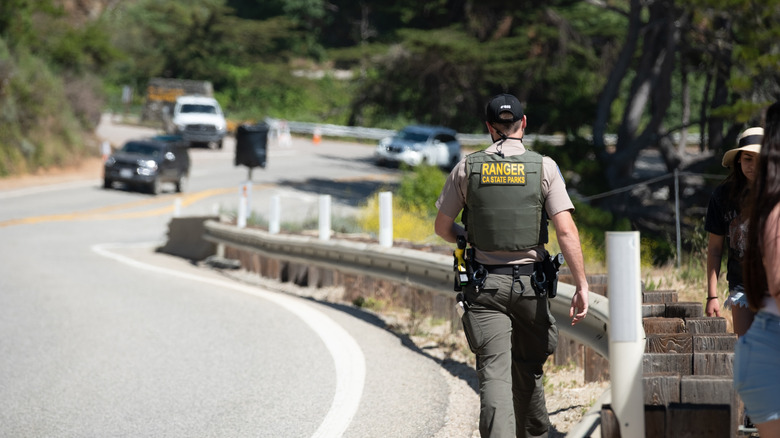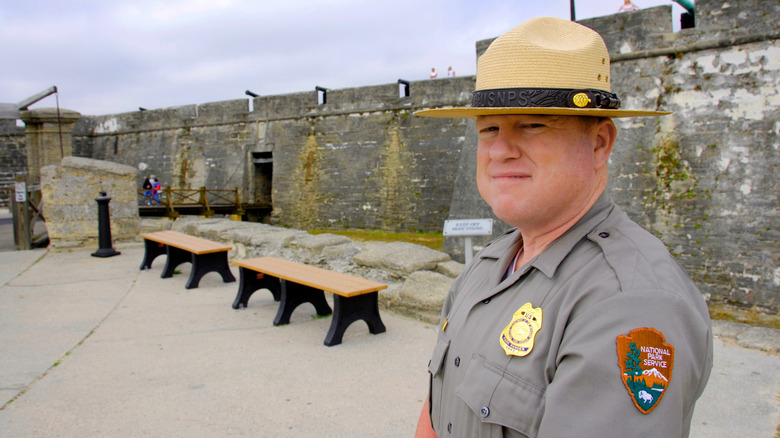The No-Nonsense Reason Why You Should Never Mess With Park Rangers
When most people picture a park ranger, they think of someone leading a guided hike, pointing out cool-looking birds, or answering questions about wildlife. But national park rangers actually do way more than that — they're federal law enforcement officers, armed and trained to handle serious situations. On top of that, they have the full authority to arrest anyone breaking the law. Their primary focus, of course, is protecting the parks and visitors — but their job is much riskier than you may have believed.
The National Park Service (NPS) operates under federal authority, which means many of its park rangers are classified as commissioned officers. And while there are different types of rangers working in national and state parks, even some state rangers are considered Peace Officers, meaning they carry firearms, handcuffs, pepper spray, and other tools of the trade. While it's not always because they expect danger, they're trained to respond to it should it arise. According to the NPS, officers are responsible for enforcing federal and state laws, with some of them investigating crimes (including poaching and assault) and responding to emergencies, such as drug trafficking and search and rescue operations.
Most park rangers are highly-trained public servants — many have Bachelor's degrees in an environmental-related field — who are tasked with upholding the law of the land. So when a ranger asks someone to leash their dog, stay on the trail, or leave wildlife alone, it's not just a suggestion from some park employee. It's a legal directive, and ignoring it can quickly escalate from a warning to a hefty fine or even arrest.
Why some park rangers carry weapons
While it's no secret that park rangers generally can't stand "tourons," those types of visitors aren't the reason rangers are armed. Believe it or not, park rangers don't carry weapons for show. Their jobs can place them in real danger, especially in remote wilderness areas where backup may be hours away. Many national parks span millions of acres and host millions of visitors each year. Rangers may come across anything from illegal hunting and armed trespassers to wildlife conflicts — one more reason National Park Services shares these crucial wildlife tips for all park visitors.
In backcountry areas of Yellowstone, Grand Canyon, or Big Bend, it's not uncommon for rangers to patrol alone or in pairs, responding to high-stress calls without immediate reinforcements. In these situations, being able to defend themselves is a necessity. According to data from the Public Employees for Environmental Responsibility, violence against park rangers has been on the rise since the mid-1990s.
That's why park rangers receive a lot more than just nature education. They're also trained in defensive tactics, firearms use, de-escalation techniques, and emergency medicine. If you're disrespectful or threatening toward a ranger, you're not just arguing with a park employee, but rather escalating a situation with an armed officer trained to uphold the law. In an ideal world, everyone would treat park rangers with respect. They're there to protect both the environment and the people visiting it — and yes, they are very much the real deal.

